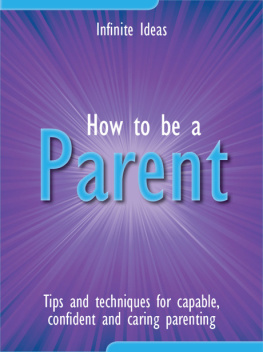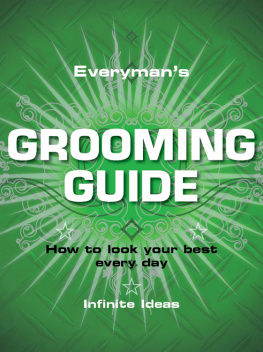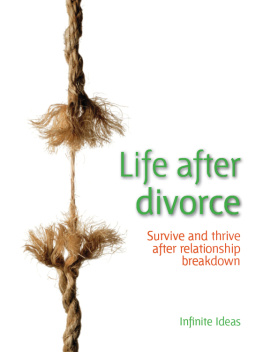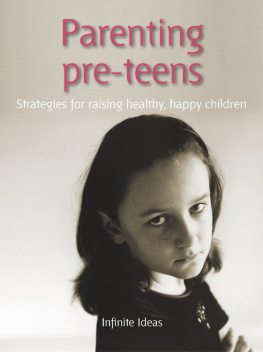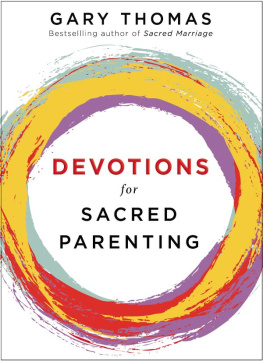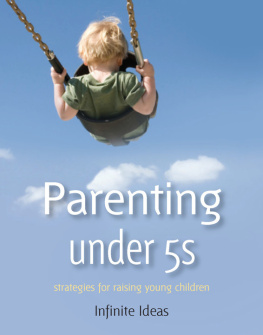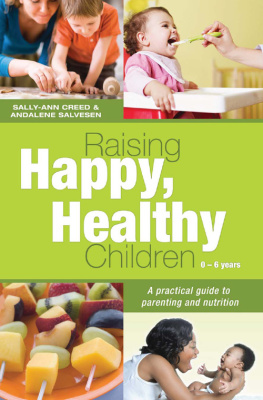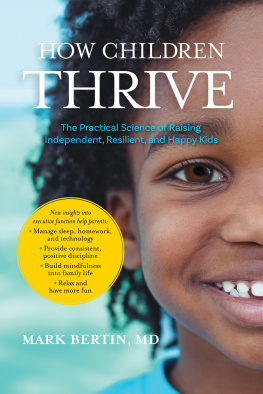How to be a parent
Tips and techniques for capable, confident and caring parenting
Infinite Ideas with Sabina Dosani, Peter Cross and Lynn Huggins-Cooper

7. Wet, wet, wet
Enuresis is a cruel and humiliating condition. Hard on pre-teens, parents and your washing machine. Stop just dreaming about dry nights heres how to make them happen.
Experts divide bedwetting (or enuresis, as its known in the trade) into two types:
- Primary nocturnal enuresis is the name we give to bedwetting in children who have never been dry at night.
- Secondary nocturnal enuresis refers to bedwetting in children who have had dry nights for at least six months in the past.
We only consider bedwetting to be a problem in kids who are five or older, because before then theyre not able to control bladder muscles.
Bedwetting can be a dreadful stigma for those children affected by it. Sometimes siblings pick up on it and can be unmerciful in their assault on a brother or sister. The sense of shame can induce unbearable anxiety before sleepovers and fear that the rest of the school, Cub pack or Brownies will know their guilty secret. Many more boys than girls wet the bed. You may have noticed it runs in families and will be relieved to hear most pre-teens have stopped bedwetting by the time they reach puberty.
Will he ever grow out of it? you wonder. We know youve probably tried all the sensible things like limiting drinks before bedtime, sending him to the toilet before going to bed and praising him for dry nights, but what if none of these makes any difference?
WHAT A STAR
Star charts work well with younger children. For every dry night, your child gets a star. Youll need a calendar with enough space to stick or draw a star under each day. Weve found it works best if the calendar is used only for this purpose, rather than for other family business. Some children like to keep them by the bed. Every ten stars can be cashed in for a treat. Having something to work towards can be a powerful motivator.
ALARM
Bedwetting alarms teach your child to get up and use the toilet rather than wetting the bed. Kids wear these devices under pyjamas or a T-shirt. Two moisture sensors complete an electrical circuit that sounds an alarm as soon as they come into contact with urine. When the alarm sounds, the idea is that kids get up, go to the toilet and change into dry clothes if necessary. You can help him by providing a torch or bedside lamp so he can get to the bathroom easily in the middle of the night. Perseverance is key. It takes up to 12 weeks for pre-teens to learn when their bladder is full and to get up to use the toilet.
OVER-LEARNING
So your child has used an alarm successfully and wakes up to go to the toilet. Great, but if she stops using the alarm straight away, the wet beds will be back. She needs to do something called over-learning. All this means is that she needs to drink a couple of glasses of water before going to bed, so she learns to stay dry even when she goes to bed with a full bladder. Mastered this? Good. Stop using the alarm on Wednesdays and Saturdays. After a couple of dry weeks, only use the alarm every other night and then only twice a week for at least another four weeks.
MEDS FOR DRY BEDS
We all produce a hormone called anti-diuretic hormone (ADH), also known as vasopressin. Its job is to concentrate urine, which stops our bladders from overfilling. A synthetic copy of ADH is available as a nasal spray and is sometimes prescribed to slow pre-teens urine production.
How did it go?
Q Our four-year-old son Adam wets the bed about once a month. Its very distressing for him. What can we do?
A It sounds as if hes too young to control his bladder all the time. The occasional accident is common at his age. Hell probably grow out of it. Once Adam sees youre not too worried, hell be less distressed.
Q My husband wet the bed and now our son does. Has he passed it on?
A About three-quarters of bedwetting children have parents who used to wet the bed. Your son will probably become dry at night at the same time as his dad did.
Q Why is it that my eight-year-old doesnt wet the bed at friends homes, but does it here? Is she doing it on purpose?
A No she isnt bedwetting at home on purpose, but it must be difficult not to think so when she seems to be able to stay dry when its important to her. We suspect that when she goes to her friends, she is so worried about wetting, that she doesnt sleep as deeply as she does at home. If shes anxious and sleeps badly, she is less likely to have accidents. Try an enuresis alarm.
Heres an idea for you
Next time your child wets the bed, why not get him involved in washing the soiled sheets? This isnt intended to be punitive. On the contrary, children feel part of the solution, not just a pain. They learn useful domestic skills in the process. In our experience, children prefer to be involved in the clean up, than guiltily watching you having to do it for them.
Defining idea
Soon after I arrived at St Cyprians I began wetting my bed. I was aged eight, so this was a reversion to a habit which I must have grown out of, at least four years earlier. Nowadays I believe bedwetting in such circumstances is taken for granted. It is a normal reaction in children who have been removed from their homes to a strange place. In those days, however, it was looked on as a disgusting crime for which the proper cure was a beating.
GEORGE ORWELL
Defining idea
While you yourself may be discouraged because of the never-ending laundry, remember that your child is not intentionally or deliberately trying to make life difficult for you. The object is to remove the sense of guilt and shame he might have about bedwetting and instead, promote a feeling of optimism about his eventual ability to control his bedwetting.
Dr CAROLYN WEBSTER-STRATTON, child psychologist and parenting expert
8. Why are they so weird?
Teenagers sometimes seem like a different species but theres a reason for that!
News flash their brains are actually different from ours so they cant help it!
Parents are not the only ones to puzzle about the workings of the teenage brain. Scientists have used advanced scanning methods to study the chemical and structural changes that occur in the brains of adolescents. They have found that the brain continues to grow and change past childhood and well into the teenage period of development.
Teenagers take risks all parents of teenagers know this. But scientists have discovered a reason why this is the case. They have found that the emotional region of the brain develops to maturity way before the area of the brain that is responsible for rational thought.
Heres something the frazzled parents of teens could have told the scientists without the need for expensive research: teenagers have heightened emotions but have not yet acquired the ability to think things through carefully. At least now we have scientific proof
When your son acts on impulse, and takes part in risky behaviour, it may not be his raging hormones, but his brain development thats to blame. He takes more risks than you because he is unable to consider the outcomes and consequences of his actions in the same way as you would. His frontal lobes the part of the brain responsible for logic, anticipating consequences, planning and organisation are not mature, and wont be until he is around 25. That means that even the most sensible teen can make very bad decisions in a moment of excitement, usually experienced in a group of friends so he will make mistakes.
Of course, the added complication is that your sons brain is in turmoil at the same time as he has access to new toys such as cars, alcohol, cigarettes, and even drugs. Obviously, any mind- or mood-altering substances can exacerbate the problem, encouraging wild behaviour as inhibitions are discarded. It can make for a lot of sleepless nights
Next page
